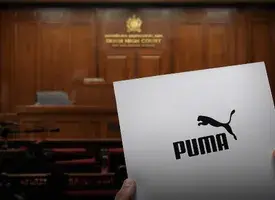Yamaha on the Road to Registration: from Refusal to Revival

Yamaha Hatsudoki Kabushiki Kaisha, a Japanese company founded on July 01, 1955, has been a global player in the two-wheeler and ATV segments. It applied for the trademark “WR”, bearing trademark application no. 3992646 in Class 12 (relating to motorcycles and related vehicles) with the Trade Marks Registry, Mumbai on November 5, 2018. The Trade Marks Registry raised objections in the Examination Report, citing conflict with Honda’s registered trademark “WR-V” under Section 11(1) of the Trade Marks Act, 1999.
Despite Yamaha’s detailed responses in December 2018 and July 2020, the Registrar refused registration in May 2021 without a reasoned order, prompting Yamaha to file the present Petition.
Prior Art Sinks Novelty: Jayson’s Design Debacle

In the domain of Intellectual Property law, the strain between innovation and imitation every so often boils down to the question of novelty and originality. The case of Jayson Industries and Anr. v. Crown Craft (India) Pvt. Ltd., symbolizes this, where day to day household designs became the arena for piracy claims. Decided by Delhi High Court in 2023, it underlines how prior art can shred claims of novelty, demarcating valuable insights for registered design proprietors and businesses alike.
Prior Art refers to any evidence that an invention or design was already known before the filing date of a design or patent application. Section 19 of the Design Act, 2000 (herein referred as the Act), includes designs published anywhere in the globe prior to the registration date such as through public sale, use, or documentation. This concept renders safeguard against granting monopolies designs that are not truly novel but just a mere mechanical change of an idea, ensuring that only innovative creations receive protection. Courts evaluate prior art on the ocular appeal rather than functionality. Essentially, prior art sets benchmark for assessing novelty, preventing the registration of mere trade variants.
First Solar V. Adani’s Mspvl: a Cautionary Tale on Fto Due Diligence as a Shield in Global Markets.

A major intellectual property battle is unfolding in the U.S. solar industry. On April 1, 2025, First Solar, Inc., a U.S.-based leader in thin-film photovoltaic (PV) technology, accused Mundra Solar PV Ltd. (MSPVL), a key subsidiary of the Adani Group, of infringing two of its U.S. patents relating to Tunnel Oxide Passivated Contact (TOPCon) solar-cell technology. The dispute is being heard in the U.S. District Court for the District of Delaware, a jurisdiction increasingly favored for complex patent litigation.
At stake is not only the validity and scope of two important patents but also the commercial future of Indian solar exports to the U.S., a market where Indian manufacturers have enjoyed a competitive advantage due to trade policy exemptions from tariffs imposed on Chinese imports.
This case illustrates the strategic significance of Freedom to Operate (FTO) searches and comprehensive IP due diligence for companies entering IP-intensive foreign markets such as the United States.
Battling Hydra-Headed Piracy: Jiostar Secures Dynamic+ Injunction from Delhi High Court

The digital revolution has propelled sports and entertainment into unprecedented popularity online, but it has also spawned a parallel ecosystem of “hydra-headed” piracy, websites and apps that replicate, redirect, and re-emerge to stream copyrighted content in seconds. Recognizing this challenge, the Indian courts have increasingly deployed innovative remedies, dynamic injunctions, and more recently, superlative injunctions, to combat issues of real-time infringement.
The Hon’ble Delhi High Court’s ex parte Dynamic+ injunction in Jiostar India Pvt. Ltd. v. criclk.com & Ors., is the latest milestone in this evolving jurisprudence, building upon a foundation of landmark cases.
Function V. Flair: Miniso’s Mimicry Meets Judicial Blockade

In the field of intellectual property, the delicate balance between functional utility and aesthetic innovation often determines the designs’ protections. The case of Travel Blue Products India Private Ltd. & Anr. v. Miniso Life Style Pvt. Ltd. & Anr., exemplifies this tension, converting a simple travel neck pillow neck into a battleground for piracy allegations. Decided by the Bombay High Court on July 31, 2025, it underlines how visual appeal can succeed over claims of functionality and unproven prior art, offering significant direction for design registrants and enterprises.
The Design Act, 2000 (herein referred to as the Act) – Design Protection, Cancellation and Piracy
A “design” covers the shape, configuration, pattern, ornament or composition of lines/colours applied to an article 2D/3D or both, so long as the finished article’s appeal is purely visual; mechanical principles, trademarks and artistic works are excluded. Once registered, the design’s copyright lasts 10 years, extendable to 15 years.
Aila! Delhi High Court Puts a Stop to ‘Andaz Apna Apna’ Infringement

The Delhi High Court has recently granted an interim injunction to safeguard the intellectual property rights associated with the iconic film Andaz Apna Apna. This judicial action effectively aims to shield the film’s creative and commercial integrity from potential infringement.
The suit in Vinay Pictures v. Good Hope & Ors. was filed by the Plaintiff seeking permanent injunction to stop the defendants from infringing the plaintiff’s copyright and trademark related to the Hindi film Andaz Apna Apna, including acts of passing off, dilution,, and related claims like damages.
Bottled Pride: the Trademark Battle Between Blenders and London Pride

Pernod Ricard, manufacturer of premium whiskeys like ‘Blenders Pride’ and ‘Imperial Blue,’ brought suit against Karanveer Singh Chhabra, marketer of ‘London Pride’ whiskey. Pernod Ricard alleged trademark infringement, passing off, and copyright violation, seeking an interim injunction to restrain Karanveer Singh Chhabra from using ‘London Pride,’ whose branding and packaging were claimed to be deceptively similar to its famous marks.
Pernod Ricard alleged that its two whiskey brands have gained a significant amount of goodwill and reputation wherein the word ‘Pride’ being the most unique component of its trademark ‘Blenders Pride’.
“Sadharan” but Not Disparaging: Court Shuts Down Emami’s Challenge to Dabur’s Ad

In a significant ruling on comparative advertising and product disparagement, the Division Bench of the Calcutta High Court in Emami Limited v. Dabur India Limited dismissed Emami’s appeal against Dabur’s advertisement for its product “Cool King.” The dispute revolved around the alleged disparagement of Emami’s well-known prickly heat powders, Dermi Cool and Navratna in a television and social media commercials. The Hon’ble Court, while balancing the principles of disparagement with the constitutional protection of commercial free speech, held that mere use of the word “Sadharan” (ordinary) and depiction of a generic bottle did not amount to actionable disparagement.
This case offers important guidance on the threshold for proving disparagement in comparative advertising, the concept of recall value in consumers minds, and the scope of injunctions in intellectual property disputes.
Prima Facie Conundrum: When Designs Face the Validity Test?

Under the Designs Act, 2000 (herein referred as the Act), the concept of “prima facie validity” plays a vital role in determining interim protections during legal disputes. Indian courts deal with prima facie validity as a starting point where evidence such as a registered design certificate is accepted as valid unless disproved by stronger contrary conclusive evidence.
Prima facie validity gives the registered design owner a legal presumption of originality and ownership and this presumption can be overturned if the opposing party submits conclusive proof of prior art, obvious similarity or any other reason that invalidates the design.
The recent cases Sirona Hygiene, TTK Prestige and Diageo Brands exhibit how courts apply prima facie validation to registered designs in Intellectual Property disputes, demonstrating the power and limits of registration protection.
Trademark Suit Amendments: Bridging Passing Off and Infringement

Recently, the Delhi High Court allowed Bajaj Resources to amend their plaint by adding new trademark registrations, business data, and related legal proceedings without changing the fundamental nature of the suit. The Court emphasized that amendments should be freely allowed if they help resolve the real issues in the case and do not unfairly harm the other party.
Brief Background
The case was originally filed by Bajaj Resources Limited (hereinafter referred to as the ‘plaintiffs’) in 2016, seeking a permanent injunction against Goyal Herbals (hereinafter referred to as the ‘defendants’) for trademark and trade dress infringement, passing off, and copyright infringement regarding the ‘Almond Drops’ mark for hair oil. During the course of the litigation, the plaintiffs, acquired three new trademark registrations, prompting an application to amend the original plaint under Order VI Rule 17 of the Civil Procedure Code (CPC).
Delhi High Court Cracks Down on Counterfeiters in Puma Trademark Case

The Delhi High Court has awarded INR 8,00,000 (approx. USD 9,011) in damages and costs to global sportswear brand PUMA SE in a landmark trademark counterfeiting case against an e-commerce operator who sold fake Puma shoes through the website www.theshoeskart.com. The judgment, delivered by Hon’ble Mr. Justice Saurabh Banerjee reinforces strict judicial action against deliberate infringement of well-known trademarks.
Tata Pay Trademark Dispute Exposes Rising Domain Name Abuse in India’s Fintech Space

The Hon’ble Delhi High Court has granted an ex-parte ad interim injunction on August 11, 2025 in favour of Tata Sons and its digital payments subsidiary, Tata Payments (Plaintiffs) against the unauthorized use of their trademarks “TATA” and “TATA PAYMENTS.” This case illustrates the risks of domain name misuse in the financial technology sector and highlights the judiciary’s proactive role in preventing consumer deception in the digital payments ecosystem.


